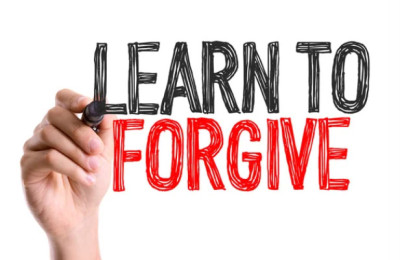
In parshat Vayeira, we learn that Sarah, Avraham’s wife, was taken to the home of King Avimelech. We also learn that on that same night, King Avimelech’s entire royal court fell ill with severe urinary retention. Also on that same night, G-d appeared to King Avimelech in a dream, saying (Bereishit 20:3, 7), “Behold you are going to die because of the woman whom you have taken, for she is a married woman… And now, return the man’s wife… and he will pray for you and [you will] live; but if you do not return [her], know that you will surely die, you and all that is yours.”
Now why would G-d need Avraham’s prayer for Avimelech? The Talmud tells us that if a person caused injury to another person and then compensated his victim materially and financially, he has done what he must legally do—but morally and spiritually, his sin is not purged from him until he asks, and receives, his victim’s forgiveness. The same principle holds true for stealing and returning stolen objects—to morally and spiritually close the chapter, one must ask and receive forgiveness. But this principle is also true regarding any other offense—and we find proof of that right in our parshah, when G-d tells Avimelech, “Return the man’s wife… and he will pray for you, and [you will] live.”
So again, why does G-d need Avraham’s prayers on behalf of Avimelech? For those who are robbed, G-d delivers justice. Avimelech snatched Sarah away to his harem on his own whim, causing terrible suffering to Avraham and Sarah alike. So, G-d’s words to Avimelech about Avraham’s prayers mean to say: Until you do enough kindness to Avraham that he actually forgets the harm that you caused and even prays for you, then your sin will never be washed away.
The fact is that when we hurt someone, we commit two sins: One, against G-d who prohibits hurting another, and two, against the person himself. Therefore, until you make amends for the offense you inflicted on the person, G-d will not forgive you. What G-d needed was not Avraham’s prayers for Avimelech but rather, Avimelech’s positive compensatory actions towards Avraham that would in turn prompt and inspire Avraham enough to pray for Avimelech.
Finally, this episode also teaches that when your victim does make amends in all the abovementioned ways, one should not be cruel and deny forgiveness when one’s aggressor asks. That is how Avraham conducted himself, and that is how we should, too.
By Rav Yitzchok Zilber ztk"l
Founder, Toldot Yeshurun
Parshat Vayeira: Does Hashem Really Need Us To Pray For Him?
Typography
- Smaller Small Medium Big Bigger
- Default Helvetica Segoe Georgia Times
- Reading Mode




